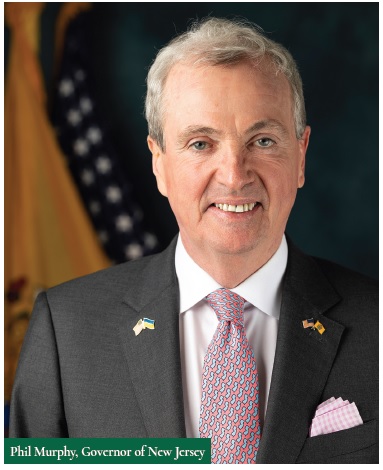The fight for clean air in American casinos continues.
A political analysis by David McKee
Neither side seems inclined to budge in the battle between United States casinos and their employees over the practice of permitting smoking during gambling. In the middle are politicians under pressure from the casino industry and seemingly loath to take a stand one way or the other.
The most acrid battlefront has been Atlantic City, scene of several years of sustained activism by Americans for Nonsmokers Rights (ANR), as well as by Casino Employees Against Smoking Effects (CEASE). Anti-smoking activists were given hope when New Jersey Gov. Phil Murphy said he would sign a smoking ban if it reached his desk. However, over
time it became plain that Murphy would not take any action beyond signing a bill, let alone pressuring the Legislature to make his wishes become law.

The present year has seen a series of retrenchments by Murphy. In a recent appearance on the radio, he seemed to waffle over whether smoking should be outlawed or not. Pressed to take executive action, he replied, “it would probably be struck down during the first 24 hours.”
Murphy’s interviewer was not satisfied with that answer, revisiting the question by saying, “Do you think casino employees have a right to breathe clean air at their workplace like every other person that works indoors? Do you think casino workers have a right to safety?”
Murphy proceeded to back away from his previous stance(s), adopting casino industry talking points by saying, “There is the other reality that you’re going to have an impact on business. That doesn’t mean it trumps the health issue. In fact, it could never do that. But folks have to go into this with their eyes open. Again, this is back to union jobs. If those fears [of
casino closures] are well-founded, that’s also a jobs question that’s at play here.”
The casino industry has long used the specter of job losses and casino closures to keep the Legislature at bay where its no-smoking exemption was concerned. Having apparently abandoned the health issue,
Murphy put the onus on Garden State conservatives by saying the minority party would have to step up. ANR President Cynthia Halley was unimpressed by Murphy’s diffident stance, responding, “There is little comfort in knowing that the governor will sign a bill if it reaches his desk. We urge him to take it a step further and use his position to push for legislative action
that protects his constituents and prioritizes casino workers’ health while they still have it.”
Also feeling irked was activist and dealer Lamont White, who fumed that Murphy “keeps saying he’d sign a bill if it reaches his desk, but he hasn’t done anything to advocate on workers’ behalf for that bill to get there. The governor is putting the corporate interests and their perceived profits ahead of our health.”
Rescue appeared to come from an unlikely quarter: the legislative GOP, previously seen as supporters of smoking casinos. A sizable faction came over to the problem gambling than New Jersey – and protecting the well being of their employees, casinos would make themselves more competitive with an overwhelming majority of guests who don’t want to visit a smoke-filled casino,” she evangelized.
The writing may be even further on the wall when it comes to the economic pros and cons of smokers. Both MGM Resorts International and Caesars Entertainment have been reported to be phasing out smoking-enabled hotel rooms, mainly due to the additional costs of keeping them clean. While Las Vegas itself remains a stronghold of smoking, higher labor costs (and contractually mandated more-frequent room cleanings) make the smoky hotel room a luxury that the biggest companies can evidently no longer afford.

However, any step taken by the industry toward cleaner air is usually accompanied by some retrograde motion. For instance, Boyd Gaming had no sooner taken over a Norfolk, Virginia, casino project from the Pamunkey Tribe that it announced that smoking in the casino was a condition of going forward.
For its part, Boyd touted “advanced ventilation” that would create the illusion of a smokeless casino. Boyd is following the lead of Rivers Portsmouth nearby, which opted to for a smoking-enabled casino in spite of vocal patron discontent.
As Boyd spokesman David Strow put it, “Smoking is permitted in casinos under Virginia law, so we plan to offer that option to our guests. However, we will be mindful of the comfort of all of our guests, and install state-of-the-art air treatment systems to minimize the impact on the gaming floor.”
The indefatigable Hallett rounded on Boyd with a blast: “The engineers who design ventilation systems have repeatedly told casinos to stop claiming that they protect casino workers and guests from dangerous secondhand smoke. They remove odor, not carcinogens and otherful harmful chemicals. Ventilation might sound like a reasonable solution, but it’s far from it. Boyd Gaming executives should know better.”
Considering that the same Boyd had strong-armed Shreveport, Louisiana leaders into bringing back smoking in that city’s casinos, the question about whether or not they knew better remained an open one. However, the Norfolk disagreement neatly broke down on familiar battle lines, with the industry maintaining that bigger and better HVAC systems will do the trick. To opponents, the industry is merely blowing smoke.
*** This article was originally published in October 2024 Casino Life Magazine Issue 170***






























